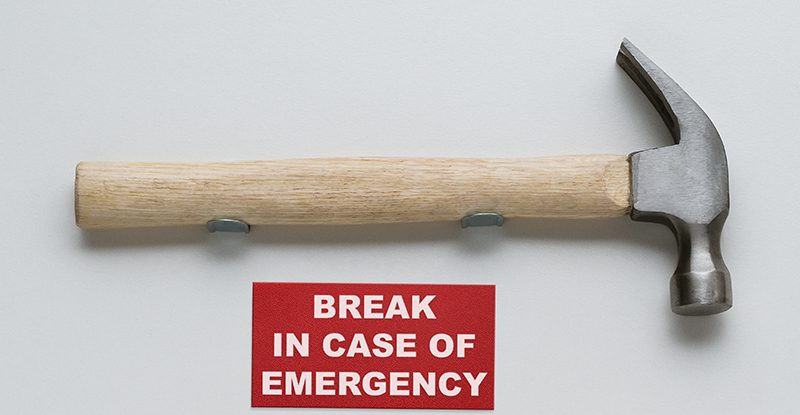
In this podcast episode, Laura Villacrusis, senior consultant with Kwela Leadership speaks with Vince Kanasoot, communications specialist at CPABC, about the art of negotiation. Part of our Coffee Chats with CPABC podcast series.
The ability to negotiate effectively is extremely important in our professional and personal worlds. When it comes to the workplace, competence in negotiating can be a key differentiator in the value you offer to their team. And in personal life, strong negotiating skills can help you with everything from bargaining over the price of something to achieving the salary you deserve, and more.
 Traditionally, successful negotiation was grounded in the belief of winning. Newer thinking however, is grounded in the belief that a successful negotiation will have a favourable outcome for both parties, and that the resulting relationship is just as important as the substance. This is often referred to as win/win or interest-based negotiation.
Traditionally, successful negotiation was grounded in the belief of winning. Newer thinking however, is grounded in the belief that a successful negotiation will have a favourable outcome for both parties, and that the resulting relationship is just as important as the substance. This is often referred to as win/win or interest-based negotiation.
This article will explain how to see negotiations as win/win situations, why being open to the other party’s interests is important, and how you can set yourself up for success when it comes to salary negotiations.
How can negotiations be win/win situations?
Entering a negotiation with a win/win mindset means you’re approaching the conversation as a partnership or collaboration, as opposed to a fight. This will set you up in a far better position for success. But how can you approach a negotiation as a win/win, when you’re set on a specific outcome and it looks like you can only attain it if the other person “loses”?
First of all, you need to be completely clear about what you want for your outcome. You might think you already know what you want, but have you really reflected on the situation and why your desired outcome will serve you the best? For example, will negotiating for a lower price with a seller for an item on Facebook Marketplace justify driving all the way to their location? Have you researched the original cost of the item, and made an informed decision on what you think it’s worth now?
Sometimes, we get stuck with one outcome that we want and we will keep pushing for it. But are there other options? Most likely, if you have options, you might be able to find common ground with the other person during the negotiation and that's when it becomes a win/win situation.
For example, even if you can’t lower the price of that Facebook Marketplace item to what you wanted, perhaps the seller can drop it off at your home, because you happen to live on the way to where they’re going to that day. This will save you the time and trouble of commuting to the seller’s location and back.
Remember the orange story
Even when you come prepared to a negotiation, you still need be open to what the other party will bring forward, knowing the other person naturally has their own interests. This where being curious about the other party’s interests is essential. And you may have to ask some really good questions along the way.
There’s a story I’d like to share that highlights the importance of being curious in the other person’s interests. In this story, there were two chefs who were working in the same kitchen. At one point, they both needed an orange. Unfortunately, there was only a single orange left in the kitchen.
So after a short conversation, both chefs decided to cut the orange in half so they could both walk away with half. Even though they were both getting less orange than they wanted, they reasoned this was the best outcome. Was this a win-win situation?
It actually wasn’t. What the chefs should have done was ask each other what they needed the orange for. If they had done this, they would have realized that one of the chefs wanted the orange for the juice because he wanted to make a sauce out of it. The other chef wanted the orange for the zest from the peel to make a dessert. So, if the chefs had a much more curious conversation, with openness to the other person's interests, they both would have walked away with exactly what they wanted. The juice for one chef, and the peel for the other.
How to prepare for salary negotiations
As with all other negotiations, it's important to be proactive and do your research when negotiating for salary. For example, is there data on salaries for similar positions in your industry and location? This is similar to buying a home, in that you would look at data on comparable homes that were recently sold in the same neighborhood. Having this type of information available will place you in a strong position to advocate for what you want.
However, it’s also important to see the whole picture, including looking at the job opportunity in a larger context. Try to see it in relationship to other opportunities that are available to you. When you're negotiating for your salary, you should consider what you’re willing to give up to take on the position, and what your “going price” is, so to speak.
You also need to self-reflect, so you know what your strengths are and are able to talk about them. Part of your self-reflection may also involve thinking about how you react in conversations. Think about past conversations you’ve had. Have you noticed a pattern in things that have triggered you to fall off course, lessening your confidence during the conversation?
Try to connect with yourself to gain the self-awareness you need to prepare yourself to present your best self. If you can combine that with clarity in what you want, confidence, information to back you up, and objectivity, then you will truly shine.
Laura Villacrusis, senior consultant with Kwela Leadership, has over 25 years of experience working with organizations to support individual and organizational performance.



